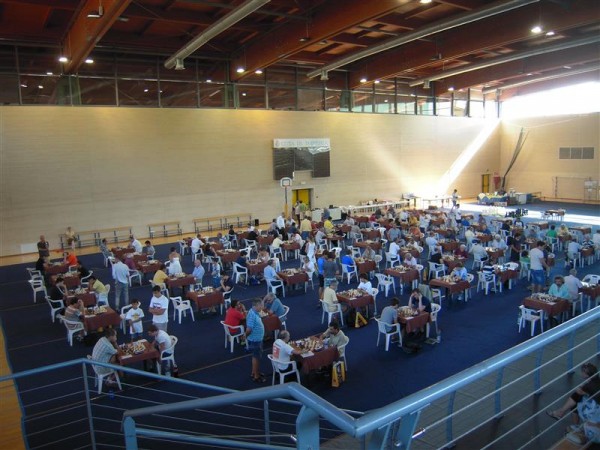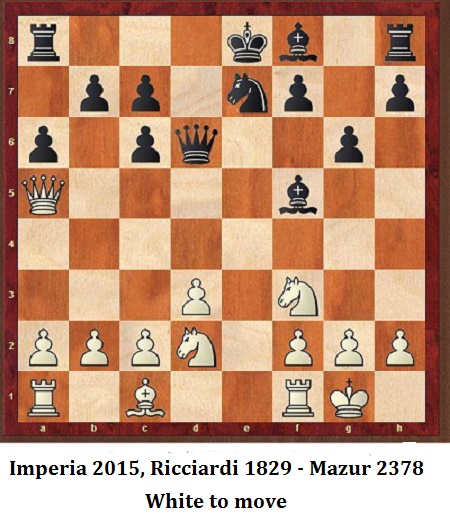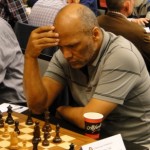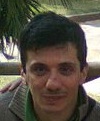
ITALIAN PLAYER CAUGHT CHEATING AT CHESS TOURNAMENT: A MINIATURE CAMERA AND WIRES TRANSMITTING INFORMATION WERE HIDDEN INSIDE HIS SHIRT
by Giulio Simeone
Sunday, September 6, 2015
IMPERIA, Italy – This time it was rather easy for arbiters and organizers to catch the chess cheater, as he wasn’t too smart. Until yesterday morning, Italian player Arcangelo Ricciardi, an average-level player rated 1829, was leading the international tournament in Imperia, a sea city near Genoa, with a surprising score of 6 points out of 7. Several Grandmasters and International Masters were behind him, including the French Grandmaster Nikolay Legky whom he had defeated in 4th round. On the italian chess sites and social networks, thousands of players had expressed the suspect he was a cheater, some more cautiously, some more explicitly. Nevertheless, when going to the playing venue for the 8th round, he kept carrying with him the devilish system that helped him during the previous rounds: but this time, unfortunately for him, the arbiters and the organizers were waiting for him with a metal detector. So, he was caught hiding a miniature camera and electric wires inside his shirt, and immediately banned from the tournament. Very probably, it worked like that: Ricciardi’s camera was filming the chessboard, and trasmitting the shots to an accomplice located somewhere, that used a powerful chess engine, and sent the right moves back to Ricciardi’s devilish device. Powerful engines usually defeat even the world’s strongest Grandmasters, and that’s why Ricciardi was winning the tournament.

“Little” cheaters are the most dangerous ones
This time, Ricciardi made it easy for the arbiters to discover the trick, as he clearly employed the system in every game he played, perhaps even in every move he played, as evidence was given that his choices very often coincide with the chess engines’ choices. But what if a player more smartly employs chess engines only from time to time, let’s say 4-5 times during a whole tournament, but he uses them when he mostly needs them, that is, in the key moments of his games? In this way, a player can steal only 1 or 1,5 points in the whole tournament, too little for being noticed by people, but quite enough for cheating his opponents, for altering the regular conduct of the tournament and for deceitfully winning prizes. In these cases, comparing the player’s moves with those suggested by engines, is completely useless, because everybody can make good moves, perhaps by chance, at some stage of the game.
More powerful instruments needed to fight cheaters
At least in the majority of the tournaments, anti-cheating measures are indeed insufficient; you can’t wait for the cheater to obtain good results, which may not be as uproarious as in this case, you must stop him before. More powerful instruments are needed to fight cheaters, like those employed in airports or important buildings; not only highly suspected players should be searched and strictly controlled, but all of them, at least a randomly-selected subset of them.

A metal detector inside an airport: why not also in chess tournaments?Eliminating the plague of chess cheating, may be difficult, may be expensive, but it has to be done.
Because when you sit at the chessboard, you have the right to be sure that you are playing against a human, and not against a computer. Against whom, whatever your strength, you have no chance to compete.



